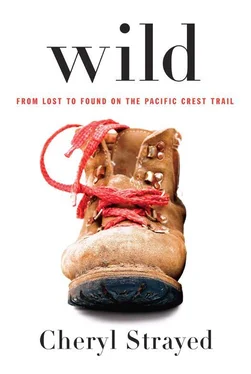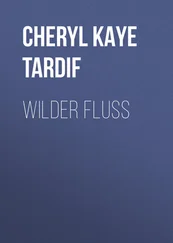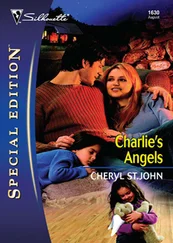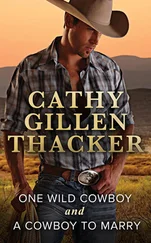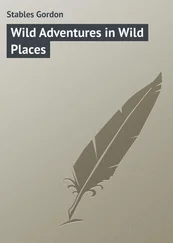Cheryl Strayed - Wild
Здесь есть возможность читать онлайн «Cheryl Strayed - Wild» весь текст электронной книги совершенно бесплатно (целиком полную версию без сокращений). В некоторых случаях можно слушать аудио, скачать через торрент в формате fb2 и присутствует краткое содержание. Год выпуска: 2012, ISBN: 2012, Жанр: Современная проза, на английском языке. Описание произведения, (предисловие) а так же отзывы посетителей доступны на портале библиотеки ЛибКат.
- Название:Wild
- Автор:
- Жанр:
- Год:2012
- ISBN:978-0-307-95765-8
- Рейтинг книги:4 / 5. Голосов: 1
-
Избранное:Добавить в избранное
- Отзывы:
-
Ваша оценка:
- 80
- 1
- 2
- 3
- 4
- 5
Wild: краткое содержание, описание и аннотация
Предлагаем к чтению аннотацию, описание, краткое содержание или предисловие (зависит от того, что написал сам автор книги «Wild»). Если вы не нашли необходимую информацию о книге — напишите в комментариях, мы постараемся отыскать её.
Wild — читать онлайн бесплатно полную книгу (весь текст) целиком
Ниже представлен текст книги, разбитый по страницам. Система сохранения места последней прочитанной страницы, позволяет с удобством читать онлайн бесплатно книгу «Wild», без необходимости каждый раз заново искать на чём Вы остановились. Поставьте закладку, и сможете в любой момент перейти на страницу, на которой закончили чтение.
Интервал:
Закладка:
Late in the afternoon, I stopped for a break in a spot on the trail with a view over the rolling green land. I was on a slope, the mountain rising above me and descending steeply below. With no other place to sit, I sat on the trail itself, as I often did. I pulled off my boots and socks and massaged my feet as I stared out across the tops of the trees, my perch on the trail essentially a ledge over the forest. I loved the sensation of feeling taller than the trees, of seeing their canopy from above, as a bird would. The sight of it eased my sense of worry over the state of my feet and the rough trail ahead.
It was in this reverie that I reached for the side pocket of my pack. When I pulled on the pocket’s zipper, Monster toppled over onto my boots, clipping the left one in such a way that it leapt into the air as if I’d thrown it. I watched it bounce — it was lightning fast and in slow motion all at once — and then I watched it tumble over the edge of the mountain and down into the trees without a sound. I gasped in surprise and lurched for my other boot, clutching it to my chest, waiting for the moment to reverse itself, for someone to come laughing from the woods, shaking his head and saying it had all been a joke.
But no one laughed. No one would. The universe, I’d learned, was never, ever kidding. It would take whatever it wanted and it would never give it back. I really did have only one boot.
So I stood up and tossed the other one over the edge too. I looked down at my bare feet, staring at them for a long moment, then began repairing my sandals with duct tape as best I could, sealing the bottoms back together and reinforcing the straps where they threatened to detach. I wore my socks inside the sandals to protect my feet from the lines of tape and hiked away feeling sick about the new state of affairs, but reassuring myself that at least I had a new pair of boots waiting for me in Castle Crags.
By evening the forest opened into a wide swath of what can only be called wilderness rubble, a landscape ripped up by its seams and logged clear, the PCT picking its way faintly along its edges. Several times I had to stop walking to search for the trail, obstructed as it was by fallen branches and clumps of turned-up soil. The trees that remained standing on the edge of the clear-cut seemed to mourn, their rough hides newly exposed, their jagged limbs reaching out at absurd angles. I’d never seen anything like it in the woods. It was as if someone had come along with a giant wrecking ball and let it swing. Was this the wilderness corridor Congress had in mind when they’d set it aside? It didn’t seem so, but I was hiking through national forest land, which, in spite of its promising name, meant that I was on land that the powers that be could use as they saw fit for the public good. Sometimes that meant that the land would remain untouched, as it had been on most of the PCT. Other times it meant that ancient trees were chopped down to make things like chairs and toilet paper.
The sight of the churned, barren earth unsettled me. I felt sad and angry about it, but in a way that included the complicated truth of my own complicity. I used tables and chairs and toilet paper too, after all. As I picked my way through the rubble, I knew I was done for the day. I mounted a steep berm to reach the flattened clear-cut above and pitched my tent among the stumps and upturned mounds of soil, feeling lonely the way I seldom did on the trail. I wanted to talk to someone, and it wasn’t just anyone I wanted to talk to.
I wanted to talk to Karen or Leif or Eddie. I wanted to have a family again, to be folded into something I believed was safe from destruction. Right alongside my longing for them, I felt something as hot as hate for each of them now. I imagined a big machine like the one that had mawed up this forest mawing up our forty acres in the Minnesota woods. I wished with all my heart that it really would. I would be free then, it seemed. Because we had not been safe from destruction after my mom died, total destruction would come now as a relief. The loss of my family and home were my own private clear-cut. What remained was only ugly evidence of a thing that was no more.
I’d last been home the week before I left to hike the PCT. I’d driven up north to say goodbye to Eddie and to visit my mother’s grave, knowing I wouldn’t return to Minnesota after I finished my hike. I worked my last shift at the restaurant where I waited tables in Minneapolis and drove three hours north, arriving at one in the morning. I’d planned to park in the driveway and sleep in the back of my truck so as not to disturb anyone in the house, but when I arrived, there was a party in progress. The house was lit up, and in the yard there was a bonfire; tents were scattered all around, and loud music blared from speakers propped in the grass. It was the Saturday of Memorial Day weekend. I got out of my truck and walked through throngs of people, most of them unknown to me. I was taken aback, but not surprised — by either the raucous nature of the party or the fact that I hadn’t been invited. It was only further evidence of how profoundly things had changed.
“Cheryl!” Leif bellowed when I entered the garage packed with people. I pushed my way toward him through the crowd and we embraced. “I’m tripping on ’shrooms,” he told me cheerfully, clutching too hard on my arm.
“Where’s Eddie?” I asked.
“I don’t know, but I got something to show you,” he said, tugging on me. “It’s guaranteed to piss you off.”
I followed him into the yard and up the front stairs of our house and through the door until we were standing before our kitchen table. It was the same one we’d had in the Tree Loft apartments when we were kids, the one our mother had bought for ten bucks, the one we’d eaten on that first night we met Eddie, when we thought we were Chinese because we sat on the floor. It was the height of a normal table now. After we’d moved out of Tree Loft and into a regular house with Eddie, he’d cut off the short legs and bolted a barrel to the bottom and we’d eaten off of it all these years sitting in chairs. The table had never been fancy, and it had become less so over the years, cracking in places that Eddie repaired with wood putty, but it had been ours.
Or at least it had been until that night the week before I left to go hike the PCT.
Now the surface of the table was smattered with freshly carved words and phrases, and names and initials of people linked by plus signs or rimmed with hearts, obviously made by those at the party. As we looked on, a teenaged boy I didn’t know carved into the table’s surface with a Swiss army knife.
“Stop it,” I commanded, and he looked at me with alarm. “That table is …” I couldn’t finish what I wanted to say. I only turned and bolted out the door. Leif trailed behind me as we walked past the tents and the bonfire, past the chicken coop that was now devoid of chickens and away from the horse pasture where no horses lived anymore and down a trail into the woods to the gazebo that was back there, where I sat and cried while my brother stayed quietly by my side. I was disgusted with Eddie, but more, I was sick with myself. I’d burned candles and made proclamations in my journal. I’d come to healthy conclusions about acceptance and gratitude, about fate and forgiveness and fortune. In a small, fierce place inside me, I’d let my mother go and my father go and I’d finally let Eddie go as well. But the table was another thing. It hadn’t occurred to me that I’d have to let that go too.
“I’m so glad I’m leaving Minnesota,” I said, the words bitter in my mouth. “So glad.”
“I’m not,” said Leif. He put his hand on my hair at the back of my head and then took it away.
“I don’t mean I’m glad to be leaving you ,” I said, wiping my face and nose with my hands. “But I hardly ever see you anyway.” It was true, much as he claimed that I was the most important person in his life — his “second mother,” he sometimes called me — I saw him only intermittently. He was elusive and vague, irresponsible and nearly impossible to track down. His phone was constantly being disconnected. His living situations were always temporary. “You can visit me,” I said.
Читать дальшеИнтервал:
Закладка:
Похожие книги на «Wild»
Представляем Вашему вниманию похожие книги на «Wild» списком для выбора. Мы отобрали схожую по названию и смыслу литературу в надежде предоставить читателям больше вариантов отыскать новые, интересные, ещё непрочитанные произведения.
Обсуждение, отзывы о книге «Wild» и просто собственные мнения читателей. Оставьте ваши комментарии, напишите, что Вы думаете о произведении, его смысле или главных героях. Укажите что конкретно понравилось, а что нет, и почему Вы так считаете.
